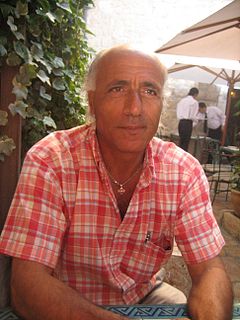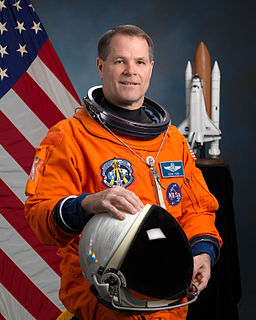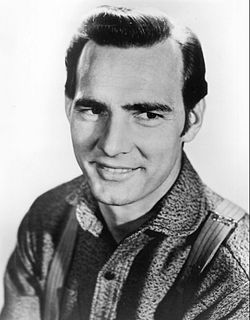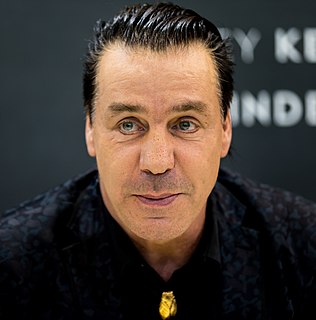A Quote by Edward Teller
Had we not pursued the hydrogen bomb, there is a very real threat that we would now all be speaking Russian. I have no regrets.
Quote Topics
Related Quotes
Some of [Donald Trump] comments can be interpreted as potentially reducing the threat of nuclear war. The major threat right now is right on the Russian border. Notice, not the Mexican border, the Russian border. And it's serious. He has made various statements moving towards reducing the tensions, accommodating Russian concerns and so on.
The threat is there. It's very real and it's continuing. And what the Obama people are doing, in effect, is saying, well, we don't need those tough policies that we had. That says either they didn't work, which we know is not the case - they did work, they kept us safe for seven years - or that now somehow the threat's gone away. There's no longer a threat out there, we don't have to be as tough and aggressive as the Bush administration was.
I think what we are confronting now is a new war of ideas. It's not communism versus capitalism, but it is authoritarianism versus democracy and representative government. And that is a threat that here in Europe, they feel acutely. They've seen their countries interfered with, bombarded by cyber-attacks, by Russian propaganda, indeed, by Russian troops.
Now comes the threat of climate crisis - a threat that is real, rising, imminent, and universal. Once again, it is the 11th hour. The penalties for ignoring this challenge are immense and growing, and at some near point would be unsustainable and unrecoverable. For now we still have the power to choose our fate, and the remaining question is only this: Have we the will to act vigorously and in time, or will we remain imprisoned by a dangerous illusion?
There is a further advantage [to hydrogen bombs]: the supply of uranium in the planet is very limited, and it might be feared that it would be used up before the human race was exterminated, but now that the practically unlimited supply of hydrogen can be utilized, there is considerable reason to hope that homo sapiens may put an end to himself, to the great advantage of such less ferocious animals as may survive. But it is time to return to less cheerful topics.
Byrnes... was concerned about Russia's postwar behavior. Russian troops had moved into Hungary and Rumania, and Byrnes thought it would be very difficult to persuade Russia to withdraw her troops from these countries, that Russia might be more manageable if impressed by American military might, and that a demonstration of the bomb might impress Russia.
































